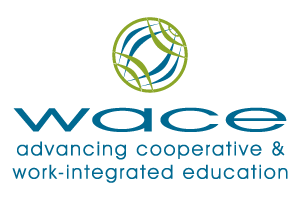

Assessment in Work-Integrated Learning
(First offered in 2020)
Offered in April – May 2024
Designing an assessment profile to evidence authentic learning including consideration of the nature of learning, WIL pedagogy, the purpose of assessment, challenges of implementing authentic assessment in the context of curriculum design.
Module description
This module explores the design of an assessment profile to evidence authentic learning. This will include related topics such as consideration of the nature of knowledge and learning, WIL pedagogy, the purpose of assessment, and the challenges of implementing authentic assessment in the context of curriculum design.
Learning Outcomes:
By the end of the module, participants will be able to:
- Describe the nature of authentic assessments and the challenges of implementing authentic assessment in a contemporary higher education context.
- Design an authentic assessment profile that evidences learning outcomes of a WIL curriculum.
Incorporated in these learning outcomes is discussion about the following:
- Nature of learning in WIL
- Models of WIL and relationship to curriculum design and assessment
- Cross discipline differences in assessing WIL
- Reflection as a learning tool and as an assessment
- Assessing professional competence
- Key issues in assessment in WIL
Tasks/Activities
The following activities occur during the module:
- Three webinars – at which participants meet and discuss topics & assessment issues and present reflections.
- Read articles and selected readings recommended for the module
- Identify other readings
- Written contributions for example in mindmaps, online blogs or postings
- Other activities as described in module timetable and/or agreed at webinars
Key Readings:
Ajjawi, R., Tai, J., Tran Le Huu, N., Boud, D., Johnson, L., & Patrick, C.-J. (2020). Aligning assessment with the needs of work-integrated learning: the challenges of authentic assessment in a complex context, Assessment in Higher Education, 45 (2), 304-316).
Ferns, S., & Zegwaard, K. E. (2014). Critical assessment issues in work-integrated learning. Asia-Pacific Journal of Cooperative Education, 15(3), 179-188.
Hodges, D., Eames, C., & Coll, R. K. (2014). Theoretical Perspectives on Assessment in Cooperative Education Placements. Asia-Pacific Journal of Cooperative Education, 15(3), 189-207.
Villarroel, V., Bloxham, S., Bruna, D., Bruna, C., & Herrera-Seda, C. (2018). Authentic assessment: creating a blueprint for course design. Assessment & Evaluation in Higher Education, 43(5), 840-854.
Useful Readings:
Ferns, S. (Ed). (2014). HERDSA Guide: Work-Integrated Learning in the Curriculum. Higher Education and Development Society of Australasia. (Selected Chapters)
Zegwaard, K., & Rowe, A. (2019). Research-informed curriculum and advancing innovative practices in WIL, International Journal of WIL, Special Issue, 20(4), 323-334. https://www.ijwil.org/files/IJWIL_20_4_323_334.pdf
Updated readings will be advised early in 2024 (including readings from the 3rd Edition. The Routledge International Handbook of Work-Integrated Learning, Edited by Karsten E. Zegwaard & T. Judene Pretti, 2023).
Participation time
Expected total participation time approximately 15 – 20 hours – including preparation and participation in online tasks/activities.
Certificate of completion
On completion of the module, participants will receive a Certificate of Completion. This will be awarded to participants who:
- Contribute to online discussion on themes arising from webinars (short posts of approx 150 words)
- Contribute to Mind Map
- Attending at least two webinars, with alternative contribution for the other webinar if needed (as agreed with facilitators)
- Present prepared activity in Webinars Two and Three
- Post a reflection after the last webinar.
